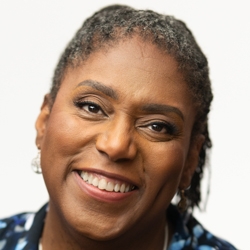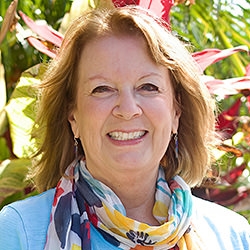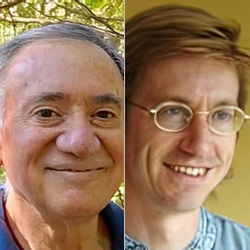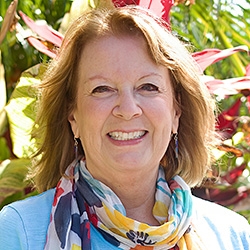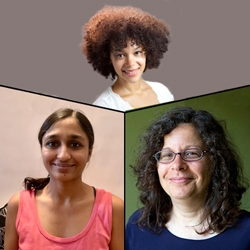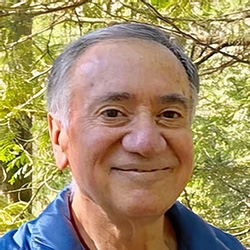

Search Results: intensity
-
For many people, attempting to connect with others across differences can feel akin to walking through a minefield. In this course recording Roxy explores a variety of concepts and practices that can help you navigate situations that might be confusing, challenging, or even shocking. And she'll be delving into key differentiations, such as equity and equality. This recording will offer a renewed sense of clarity around a number of theories that may help explain specifically why the areas of power, advantage, and rank tend to be so difficult to work with.
-
October always makes me think about Marshall Rosenberg, the founder of Nonviolent Communication. He was born October 6, 1934. If he were still alive today (he died February 7, 2015), he would be 89 years old!
-
-
CNVC Certified Trainer Arnina Kashtan talks about what she calls "witnessing humanity," touching on the gift of presence, empathy vs. identification and staying present in the face of intensity.
-
Explore NVC as a spiritual practice through dynamic conversations on compassion and transformation.
-
- Integrate the underlying principles of NVC into your daily life
- Create a daily practice of self empathy and connecting to needs
- Strengthen your own personalized set of NVC skills
- Increase your sense of power in the world
- Deepen connection with yourself and those in your life
-
We can shift from being absorbed and identified with our inner chatter and feelings to being the space of awareness of these things. Observe your breath. Then observe your mind generating thoughts. Next, feel sensations of your body, particularly the difficult ones. Now, connect with the underlying energy of needs. Ask your unconscious mind for universal needs words related to what you now notice, think and feel.
-
Trainer tip: Why do NVC practitioners sometimes use the jackal as a metaphor in the NVC world? What can it teach us? Read on for more.
-
When we feel pain about humans relate to, and conflict with, one another on Earth what can give us capacity to transform it? Perhaps in connection to the formless consciousness of unity we may relax, open, expand -- and connect to formless human needs, a sense of universal well being, benevolence and good will. Loving action flows from here. Suffering shifts into deep healing, grace and new possibility.
-
- Explore the complexities of how we can care for all of life using NVC
- See the role that power plays in relation to observations, feelings, needs, and requests
- Learn how to support people from many backgrounds in being able to apply NVC
- Discern how to engage with these vast topics as we learn and share NVC
-
- Connect the dots between NVC basic practices and the deeper "why" behind them
- Discover how NVC can support us in bringing tenderness to all of humanity
- Learn how to tie the NVC approach to liberation and vision
- Explore the many ways the tools of NVC support the path of liberation!
-
Jim and Jori offer a tip to stay present in the face of our reactivity to witnessed conflict.
-
How do we talk to ourselves and with others about polarizing topics in a way that's supportive? Seek to understand and be understood rather than press for agreement. Bring mindfulness into the conversation. Slow down and use structure to support everyone. Release knowing the solutions, answers or outcomes. Keep focus on shared universal needs. From this place we can say what's in our hearts and minds, and trust the process.
-
Ask the Trainer: Can NVC transform group conflict? Trainer shares stories and answers the question.
-
Rita learns the power of silent empathy while visiting her daughter and offering unsolicited advice.
-
Experience NVC tools for mediating conflict—whether you're involved or supporting others.
-
Many believe it's only a true NVC request when we can ask for what we need without urgency or insistence. But what if we're the target of oppression and hate in a world with systemic inequality? Is it still nonviolence to abdicate power by allowing the person enacting harm to be the one to decide whether harm continues? The intensity of the need, degree of harm, and how chronically unmet the need is, are factors to guide us for when to apply force and demand within NVC. We can be attached to outcome, without being attached to strategy.
-
Building your body and mind awareness can help you better regulate/calm your emotions. Regular self-empathy will help you better regulate your emotions as well as increase your body and mind awareness. If you are not aware of amygdala activation (fight/flight/freeze response), you will react instead of responding with choice. Use this eight-step process to develop your self-empathy/regulation skills.
-
Control may help us feel safe in an unpredictable, unsafe, wild world. Wanting control may be a response to shielding ourselves from feeling fear and being aware of our vulnerability. The more we insulate from fear, discomfort, and vulnerability, the more we are cut off from aliveness; we can become more anxious, and depressed. The more we control the more we are disconnected from empathy and care. With aliveness come joy, peace, love, awe.
-
Heal, reconnect and cultivate presence through self compassion as you restore wholeness.

Quick Links
Subscription Preferences
Stay In Touch!
Looking for ways to keep up with NVC Academy news, get special offers, free resources, or words of inspiration? Here are five ways to stay engaged:

